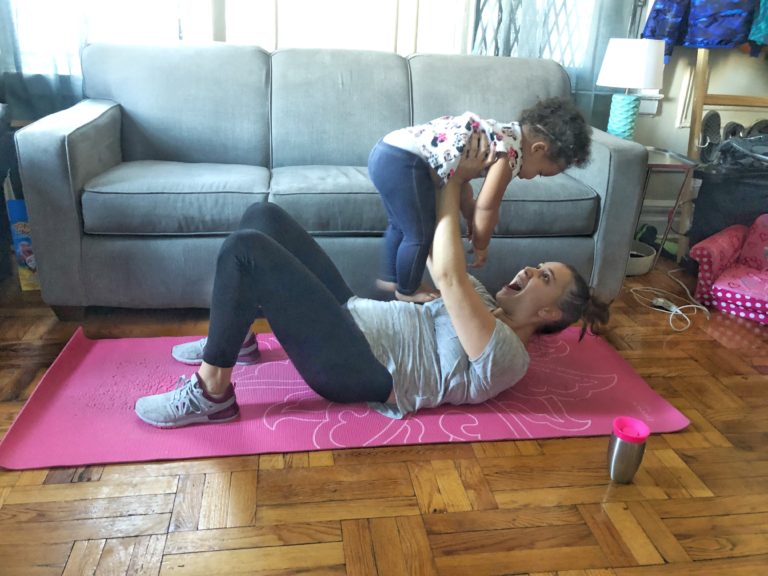Living a healthy lifestyle is all about balance and finding things to to that you love that help contribute to your goals. Here are 75 must-know tips for women’s health!
Living a healthy lifestyle is something that is almost always in the forefront of my mind. We have this one life to live and I try to live my best life so that I can feel good in my skin every single day. Some days are harder than others and balance is certainly key, as well as giving yourself grace.
Taking care of one’s health is crucial for leading a happy, productive life. As women, it’s important to pay special attention to our well-being, as we face unique health challenges and considerations. From physical fitness to mental and emotional well-being, there are numerous aspects of women’s health to focus on.

75 Must-Know Tips For Women’s Health
Before we dive into the 75 must-know tips for women’s health, let’s dive into why it’s important to focus on our health as a whole. For me, the short answer is: that it makes us feel good. Whenever we feel good, we’re able to show up for ourselves, our family, and always be the best version of us.
By incorporating these tips into your lifestyle, you can empower yourself to make informed decisions and take control of your health.
-
Schedule regular check-ups: Visit your healthcare provider for routine screenings, vaccinations, and preventive care.
-
Know your family medical history: Understanding your genetic background can help identify potential health risks.
-
Perform breast self-exams: Familiarize yourself with your breasts’ normal look and feel to detect any changes or abnormalities.
-
Get regular mammograms: As recommended by your doctor, schedule mammograms for early detection of breast cancer.
-
Prioritize heart health: Maintain a healthy diet, exercise regularly, and monitor your blood pressure and cholesterol levels.
-
Practice safe sex: Use protection and get tested regularly for sexually transmitted infections.
-
Perform pelvic floor exercises: Strengthen your pelvic floor muscles with Kegel exercises to prevent urinary incontinence and maintain pelvic health.
-
Stay active: Engage in regular physical activity to improve cardiovascular health, maintain weight, and boost mood.
-
Practice healthy eating habits: Consume a balanced diet rich in fruits, vegetables, lean proteins, whole grains, and healthy fats.
-
Stay hydrated: Drink an adequate amount of water daily to support overall health and bodily functions.
-
Manage stress: Incorporate stress-management techniques like meditation, deep breathing, or yoga into your routine.
-
Get enough sleep: Aim for 7-8 hours of quality sleep each night to promote physical and mental well-being.
-
Practice good hygiene: Maintain proper hygiene practices to prevent infections and promote overall health.
-
Protect your skin: Wear sunscreen, hats, and protective clothing to shield your skin from harmful UV rays.
-
Prioritize mental health: Seek therapy or counseling when needed, and practice self-care activities that promote emotional well-being.
-
Practice regular self-breast exams: Perform monthly self-exams to detect any changes or abnormalities in your breasts.
-
Stay up-to-date with vaccinations: Get recommended vaccines, such as those for HPV, flu, and tetanus, to protect against preventable diseases.
-
Take care of your reproductive health: Schedule regular gynecological check-ups and screenings for early detection of reproductive health issues.
-
Practice safe and responsible alcohol consumption: Limit your alcohol intake and know your limits to prevent potential health risks.
-
Maintain a healthy weight: Strive for a weight that is appropriate for your height and body type to reduce the risk of chronic diseases.
-
Practice safe lifting techniques: Avoid straining your back by lifting heavy objects correctly, using your legs and not your back.
-
Protect your eyes: Wear sunglasses and limit screen time to prevent eye strain and protect against UV damage.
-
Limit processed foods and sugary drinks: Opt for whole, unprocessed foods and choose water or herbal tea over sugary beverages.
-
Be mindful of your menstrual health: Track your menstrual cycle, monitor any changes or irregularities, and seek medical attention if necessary.
-
Practice regular dental hygiene: Brush your teeth twice a day, floss daily, and visit your dentist for regular check-ups.

-
Practice self-defense: Learn basic self-defense techniques to enhance personal safety and security.
-
Incorporate strength training: Engage in weight-bearing exercises to build and maintain bone density.
-
Take care of your mental well-being: Engage in activities that promote relaxation, such as reading, hobbies, or spending time in nature.
-
Protect your hearing: Limit exposure to loud noises and use ear protection when necessary to prevent hearing loss.
-
Practice safe driving: Observe traffic rules, avoid distractions, and wear seatbelts to ensure road safety.
-
Educate yourself about reproductive health: Stay informed about contraception methods, fertility options, and family planning.
-
Practice proper posture: Maintain good posture to prevent back and neck pain.
-
Stay socially connected: Nurture relationships and cultivate a support network to promote emotional well-being.
-
Limit exposure to environmental toxins: Be aware of pollutants and chemicals in your environment and take steps to minimize exposure.
-
Practice regular self-care: Dedicate time for activities that promote relaxation, rejuvenation, and self-nurturing.
-
Stay informed about menopause: Understand the physical and emotional changes that occur during menopause and seek support when needed.
-
Practice safe sun exposure: Limit sun exposure during peak hours, wear protective clothing, and use sunscreen to prevent skin damage.
-
Manage chronic conditions: If you have a chronic condition, work closely with your healthcare provider to manage it effectively.
-
Strengthen your immune system: Eat a nutrient-rich diet, exercise regularly, get enough sleep, and manage stress to boost your immune system.
-
Prioritize bone health: Consume calcium-rich foods, engage in weight-bearing exercises, and consider bone density screenings when necessary.
-
Understand the signs of mental health disorders: Familiarize yourself with common symptoms of mental health issues and seek help when needed.
-
Support breast milk production: If breastfeeding, maintain a healthy diet, stay hydrated, and seek support from lactation consultants if necessary.
-
Practice safe cosmetics and personal care product use: Choose products that are free of harmful chemicals and irritants.
-
Stay informed about reproductive cancers: Understand the signs and symptoms of cervical, ovarian, and uterine cancers and get regular screenings.
-
Stay updated on current health recommendations: Keep track of new research and guidelines to make informed decisions about your health.
-
Educate yourself about sexual health: Understand contraception options, consent, and safe sexual practices.
-
Protect your back: Maintain proper lifting techniques, avoid prolonged sitting, and engage in exercises that strengthen your back muscles.
-
Take breaks from technology: Limit screen time and take regular breaks to protect your eyes and promote mental well-being.
-
Practice regular hand hygiene: Wash your hands thoroughly and frequently to prevent the spread of germs and infections.
-
Seek support for perinatal and postpartum mental health: Reach out to healthcare professionals or support groups if experiencing perinatal or postpartum depression or anxiety.
-
Promote healthy relationships: Set boundaries, communicate openly, and seek help if in an abusive or unhealthy relationship.
-
Manage menopausal symptoms: Seek guidance from healthcare professionals about managing symptoms like hot flashes, mood changes, or sleep disturbances.
-
Support your immune system during pregnancy: Eat a balanced diet, take prenatal vitamins, and practice good hygiene to protect yourself and your baby.
-
Stay informed about reproductive rights and options: Understand your rights and access to reproductive healthcare.
-
Practice safe travel: Take necessary precautions, get vaccinated if required, and carry essential medications and insurance.
-
Manage chronic pain: Seek medical advice and explore different pain management techniques to improve your quality of life.
-
Support sexual and reproductive education: Advocate for comprehensive sex education to empower individuals to make informed decisions.
-
Protect your mental health during pregnancy: Seek emotional support, practice self-care, and communicate openly about your emotions.
-
Monitor your cholesterol levels: Get regular blood tests and make lifestyle changes if necessary to maintain healthy cholesterol levels.
-
Manage stress-related hair loss: Prioritize stress management techniques and seek medical advice if experiencing excessive hair loss.
-
Support cervical health: Get regular Pap smears and HPV vaccinations to protect against cervical cancer.
-
Advocate for women’s health research: Support initiatives and organizations that focus on women’s health research and advancement.
-
Prioritize self-compassion: Be kind to yourself, practice self-care, and avoid self-judgment or negative self-talk.
-
Prevent urinary tract infections: Stay hydrated, practice good hygiene, and urinate before and after sexual activity.
-
Manage premenstrual syndrome (PMS) symptoms: Maintain a healthy lifestyle, consider dietary changes, and seek medical advice if symptoms are severe.

-
Practice safe cosmetic surgeries: Research surgeons, ask questions, and carefully consider the potential risks and benefits.
-
Stay informed about reproductive choices: Understand options such as contraception, fertility treatments, and reproductive technologies.
-
Practice gratitude and positive affirmations: Focus on the positive aspects of your life and practice gratitude for what you have.
-
Support maternal mental health: Advocate for accessible mental health services and support systems for mothers during and after pregnancy.
-
Monitor blood pressure: Get regular blood pressure checks and make lifestyle changes if necessary to maintain healthy levels.
-
Practice mindfulness in eating: Pay attention to your hunger cues, eat slowly, and savor your food to promote mindful eating.
-
Seek support for postpartum recovery: Consult healthcare professionals for postpartum care and recovery guidance.
-
Promote healthy body image: Surround yourself with positive influences and challenge societal beauty standards.
-
Manage endometriosis symptoms: Seek medical advice for effective management of pain and other symptoms associated with endometriosis.
-
Trust your instincts: Listen to your body, trust your intuition, and seek medical advice if something feels off.
Looking for more women’s health tips? You’ll love these:
- 25 WAYS TO SIMPLIFY YOUR LIFE
- 25 EASY WEIGHT LOSS TIPS TO KICK-START YOUR METABOLISM
- 10 SUPER TOXIC THINGS THAT ARE HIDING IN YOUR HOME (AND HOW TO FIX IT)
- 35 POSITIVE AFFIRMATIONS YOU NEED IN YOUR EVERYDAY LIFE
- FIVE FOODS YOU NEED TO EAT FOR A HEALTHY GUT
Women’s health encompasses a broad range of physical, mental, and emotional aspects, and it’s crucial to prioritize self-care and make informed decisions about our well-being. By incorporating these 75 must-know tips into your life, you can take charge of your health, reduce risks, and enhance your overall quality of life. Remember, each woman’s journey is unique, so it’s essential to work closely with healthcare professionals, stay informed, and advocate for your own health and the well-being of all women.
XOXO,
Allison






